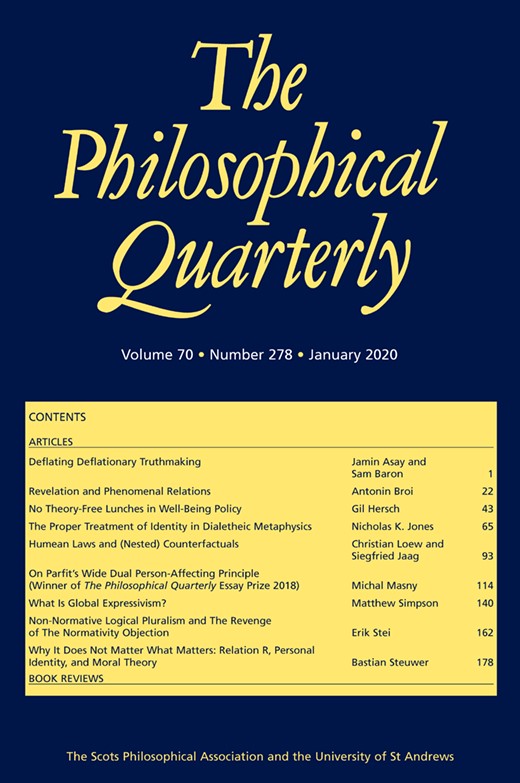-
Views
-
Cite
Cite
Erik Stei, Non-Normative Logical Pluralism and the Revenge of the Normativity Objection, The Philosophical Quarterly, Volume 70, Issue 278, January 2020, Pages 162–177, https://doi.org/10.1093/pq/pqz040
Close - Share Icon Share
Abstract
Logical pluralism is the view that there is more than one correct logic. Most logical pluralists think that logic is normative in the sense that you make a mistake if you accept the premisses of a valid argument but reject its conclusion. Some authors have argued that this combination is self-undermining: Suppose that |$\mathcal {L}_{1}$| and |$\mathcal {L}_{2}$| are correct logics that coincide except for the argument from Γ to ϕ, which is valid in |$\mathcal {L}_{1}$| but invalid in |$\mathcal {L}_{2}$|. If you accept all sentences in Γ, then, by normativity, you make a mistake if you reject ϕ. In order to avoid mistakes, you should accept ϕ or suspend judgment about ϕ. Both options are problematic for pluralism. Can pluralists avoid this worry by rejecting the normativity of logic? I argue that they cannot. All else being equal, the argument goes through even if logic is not normative.





